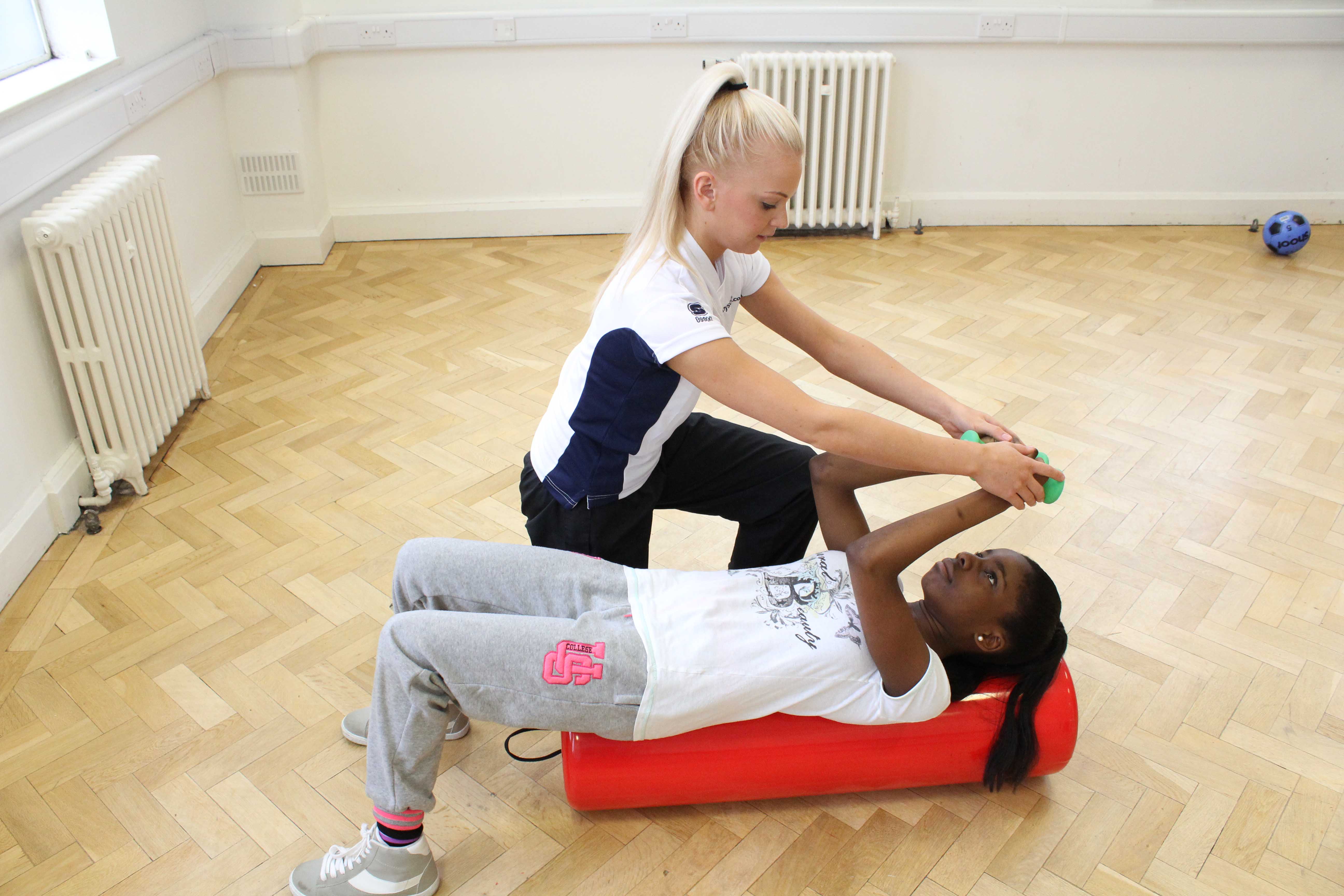Causes of cancer in childhood
The cause of cancer in children is not known. It is not infectious and neither is it caused be genes passed down from parents.
 Above: Building strength, co-ordination and balance under supervision of a paediatric physiotherapist
Above: Building strength, co-ordination and balance under supervision of a paediatric physiotherapistSymptoms of cancer during childhood
Cancer is rare for children. However, children that have undiagnosed cancer may complain of headaches, tiredness, lack of appetite, nausea and visual changes. You may notice your child has an area of swelling or bruising and a fever. These symptoms are not exclusive to cancer and do not confirm a definitive diagnosis.
Diagnosis of cancer in childhood
If your child complains of the above symptoms, take them to see a doctor who will carry out a urine test to check for abnormal levels of chemicals in the urine. If a tumour is suspected, further tests such as X-rays, computed tomography (CT) scans, ultrasound and bone scans may be necessary.
Treatment of cancer during childhood
Depending on the type and nature of the tumour diagnosed, the treatment options will vary. The options for your child will be discussed with you by a paediatric oncologist. Treatment may include blood transfusions, symptom control, surgery, drugs, radiotherapy and management of secondary complications such as infections or breathing problems.
Physiotherapy for children with cancer
Your child will significantly benefit from physiotherapy assessment and treatment at any stage of their condition. Physiotherapy can help ensure your child is physically and cognitively strong enough for surgery or radiation therapy. It can also help your child recover from surgery and get back to normal level of ability and function. Physiotherapy can also prove beneficial in the palliative care of your child to ensure optimum comfort and dignity in the end stages of the condition.
Your physiotherapist will carry out a detailed assessment of your child’s muscle strength, range of movement, muscle tone, pain, sensation and proprioception. The findings of the assessment will be discussed and a list of your child’s problems and goals will be documented. Your child’s goal may be to use both hands to play a game or to walk up the stairs safely. Your physiotherapist will use play to plan fun activities which work towards your child achieving short term goals. A treatment plan for a child with cancer may include:
- Management of pain, swelling and fatigue
- Respiratory management
- Stretches of joints, muscles and scar tissue to maintain range of movement
- Strengthening exercises
- Transfer and walking practice
- Cardiovascular exercise
- Fun balance and co-ordination exercises
- Positioning and postural education
- Hydrotherapy
- Education of family and carers
- Supply of aids and equipment to make walking and completing tasks easier
There are a wide range of physical and cognitive benefits that are achieved via specialist paediatric physiotherapy. Some of these benefits include:
- Increased body image confidence
- Increased independence and decreased reliance on others assistance
- Increased self-esteem and motivation
- Increased mobility and ability to move around
- Increased muscle strength, balance and co-ordination
- Increased exercise tolerance and stamina
- Improved posture and core stability
- Learn how to help your child through physical activity and exercise
- Decreased pain and swelling
- Decreased risk of secondary complications
Why Physio.co.uk for children with cancer
At Physio.co.uk we understand the symptoms and problems your child may face as a result of cancer. Our specialist physiotherapists have valuable experience working with cancer in childhood and can provide a high standard of assessment and treatment to enable optimum function and quality of life.
- Access to variety of pain relief methods
- Access to hydrotherapy
- Access to occupational therapy
- One to one treatment with your child
- Physiotherapy at any stage of medical treatment
- Knowledgeable, motivated physiotherapists
- Professional liaison with other health colleagues involved in care
- Treatment at home or in the clinic
- No waiting lists
- Flexible appointment times
- Provision of home exercise program

 0330 088 7800
0330 088 7800


































